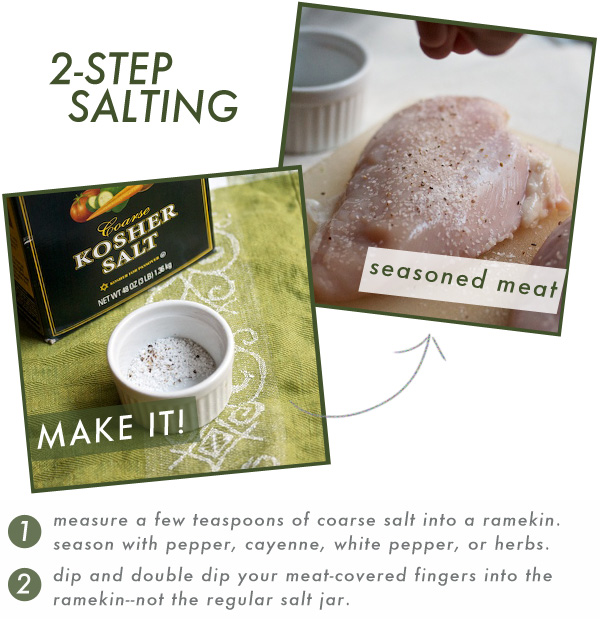When I cook, I make a mess. Flour on my shirt, sugar on the floor, that kind of thing.
But when I cook meat, I have to be neat. The prospect of contaminating my whole kitchen, from sponge to stove, with salmonella is terrifying. I use a plastic cutting board, save the meat for the end of my prepwork, and wash up in very hot soapy water.
I also make a private little salt-and-pepper reserve just for seasoning my chicken, steak, or pork chops.
I used to reach into my salt jar, pat some salt into a chicken thigh, then find myself stuck if I needed more salt. I didn’t want to reach my chicken-y hand into the pristine salt jar again.
So I’d lather up before going in for dip number 2. Same for dip numbers 3 and 4. I ended up with dry hands yet suffered from that nagging fear of contamination, all for the sake of having well-seasoned meat, which is obviously crucial.
The ramekin reserve of salt and pepper solves that problem. Now I measure out about the amount of salt and pepper I’ll need for the meat I’m seasoning. And then I dip my hand in for salt, smear it on the raw meat, and then go in for more. If there’s any salt left at the end, I just toss it. And then I brown the meat and make delicious things.
Make It! is a new series where I share super smart tips for prepping, making, and presenting food in the easiest possible way. See tips from previous columns, like how to cut fifteen cherry tomatoes at once and how to keep lettuce fresh in the fridge.
[layout by Chevrons and Stripes]
























